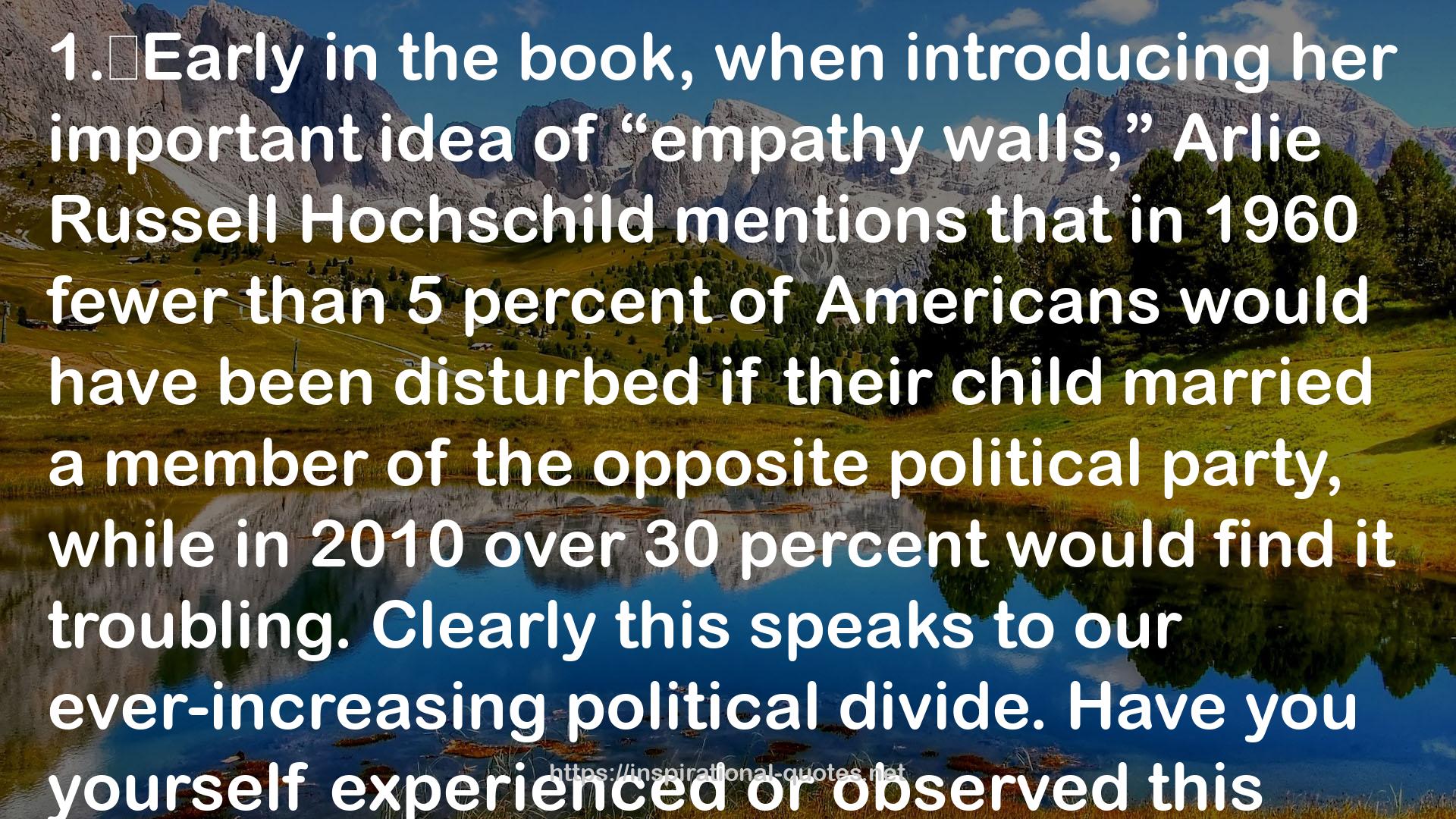" 1.Early in the book, when introducing her important idea of “empathy walls,” Arlie Russell Hochschild mentions that in 1960 fewer than 5 percent of Americans would have been disturbed if their child married a member of the opposite political party, while in 2010 over 30 percent would find it troubling. Clearly this speaks to our ever-increasing political divide. Have you yourself experienced or observed this phenomenon in your community? (p. 6) 2.Hochschild argues that our political split has widened because “the right has moved right—not because the left has moved left.” Do you agree or disagree? Is her evidence persuasive? What are the implications for our democracy? (p. 7) 3.What does Hochschild consider “the Great Paradox” and why is Louisiana an extreme example? (p. 8) 4.Early on as well as later in the book, Hochschild mentions the friendship of Sally Cappel and Shirley Slack and says she believes “their friendship models what our country needs to forge: the capacity to connect across difference.” Do you agree? Do you have friends from across the political divide? What challenges do these “across-the-divide” friendships present? (pp. 13, 240) "
― Arlie Russell Hochschild , Strangers in Their Own Land: Anger and Mourning on the American Right
